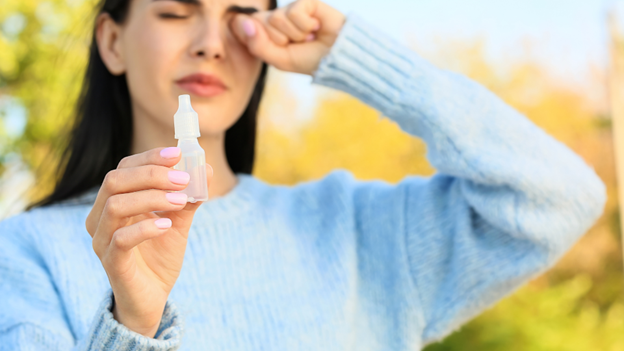
How long is pink eye contagious?
Let's dive into the world of eye health, where the not-so-uncommon visitor, conjunctivitis – or the friendlier term, pink eye – often makes an appearance. When you have pink eye, you're probably wondering, 'how long is pink eye contagious?'
Join us as we unravel what you need to know about pink eye.
How long is pink eye contagious?
It depends on the type of pink eye you have. Here’s the breakdown.
- Viral conjunctivitis. It's contagious before symptoms appear and remains contagious as long as symptoms persist, usually lasting several days.
- Bacterial conjunctivitis. This form of pink eye is contagious as long as the eye produces discharge and tears. The duration shortens with antibiotic drops, potentially lasting up to 10 days.
- Allergic conjunctivitis. This non-contagious form of pink eye doesn't spread.
Generally, staying home from work, school or daycare is wise until symptoms significantly improve. Seeking advice from a healthcare provider at your local CityMD is always helpful for personalized guidance.
Preventing the spread of pink eye.
Practical steps become paramount during this contagious phase.
Practice good hand hygiene, avoid touching your face and refrain from sharing personal items to curb the transmission of pink eye.
The contagious period typically subsides after the initial week. But be sure to maintain precautions for a little longer to prevent potential spread.
What helps pink eye go away faster?
Navigating the path to a quicker recovery from pink eye involves a thoughtful approach.
- Managing discomfort. To ease the discomfort of pink eye, consider applying cool compresses and using over-the-counter eye drops.
- Viral vs. bacterial treatment. Since viral infections don't respond to antibiotics, the primary focus is on symptom management. Rest, hydration and over-the-counter remedies can support the healing process. If bacterial pink eye is the culprit, antibiotic eye drops can help.
- Hygiene practices and self-care. Wash your hands diligently to prevent the spread of infection. Avoid rubbing your eyes, which can exacerbate irritation. Likewise, avoid sharing personal items to minimize the risk of spreading the condition.
Extra care and attention can go a long way in expediting your journey to pink-eye-free days.
When should you see a doctor about pink eye?
Knowing when to seek professional help for pink eye is essential.
- Signs for medical attention. Look out for severe symptoms like intense pain, vision changes or sensitivity to light. If you observe these signs, it's time to consult a doctor promptly.
- Persistence or worsening. If your pink eye symptoms persist or worsen after a few days, seeking medical attention is advised. Timely intervention can prevent complications and ensure an accurate diagnosis.
- Crucial doctor's intervention. Professional evaluation becomes important when dealing with bacterial pink eye, which may require antibiotic treatment. Additionally, a doctor's guidance is crucial for severe or recurrent cases.
How long is pink eye contagious? Final thoughts.
With faster pink eye recovery, remember these key points:
- Promptly address severe symptoms.
- Seek medical attention if symptoms persist or worsen.
- Your eye health is a priority and timely intervention matters.
CityMD is here to support you. If you're experiencing persistent or severe pink eye symptoms, don't hesitate to contact our dedicated medical professionals by stopping in or booking a virtual appointment.
We're ready to provide expert guidance, accurate diagnoses and personalized treatment plans to ensure your eyes get the care they deserve.

We’re ready to care for you.
Visit any CityMD urgent care location in your community today for an evaluation with one of our expert providers.